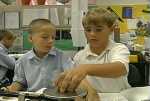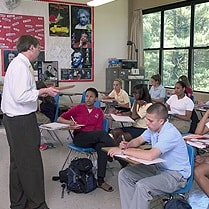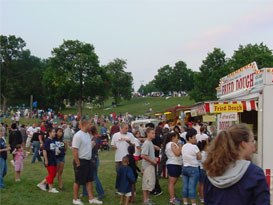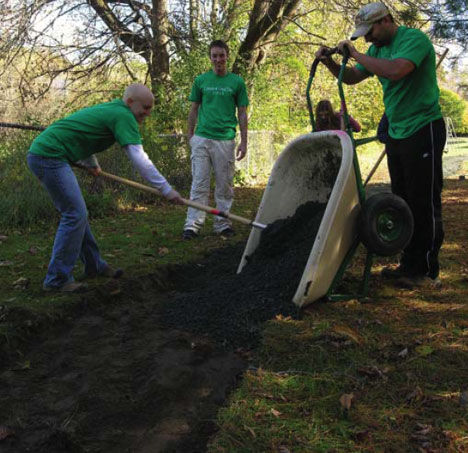زندگی در دانشگاه

Life in Academia
A person like me, who teaches and conducts research at an academic institution, is called “academic.” The academic institution may be a form of a university, a college or another post-secondary institution. I have been working in universities for almost eleven years. While enjoying my life in academia, we “academics” also have a lot of stress and often go through a large amount of stress and frustration.
Firstly, we have pressure from the university we are working at to become effective teachers. As the environment (in terms of the society and the marketplace) has become more dynamic and competitive, we, as teachers, must provide students with necessary skills and knowledge so they can become successful in their society. It requires a lot of preparation, updating of material, self-learning, and continuous improvement in teaching. For these reasons, teaching and learning should complement each other.
Secondly, we have pressure from both our university and our academic peers to become active and effective researchers. What we teach to our students in class is no doubt closely related to what we have learned or discovered from our research activities.
Thirdly, we have pressure from the university and the community to become good corporate citizens through active participation in various university committees and/or the community at large. A university and the community it belongs to must work closely together to identify common interests and to conduct projects that could benefit both parties.
Even with a high degree of the aforementioned pressures, I love my job as a teacher, scholar, and citizen. There is a high level of freedom and flexibility. Academia is a place to meet new people, to create new ideas, and for everyone in that community to learn. It is a place where both teaching and learning always take place.
conduct

to carry out a particular activity or process, especially in order to get information or prove facts
conduct a survey/investigation/review etc
We are conducting a survey of consumer attitudes towards organic food. conduct an experiment/a test
Is it really necessary to conduct experiments on animals?
conduct a campaign
They conducted a campaign of bombings and assassinations.
conduct an interview
The interview was conducted in English.
The memorial service was conducted by the Rev. David Prior.
It was the first time that I had conducted business in Brazil.
—
institution

a large organization that has a particular kind of work or purpose
an organization that does educational, scientific, or financial work, especially a large and important organization that has existed for a long time
financial/educational/research etc institution
the Government and other political institutions
powerful institutions such as world banks
the Institution of Electrical Engineers
—
academic

relating to education, especially at college or university level
He possessed no academic qualifications. a program designed to raise academic standards
—
post-secondary

relating to schools or education after you have finished high school
postsecondary education
—
academia:

[uncountable]
the world of education, esp. universities: Professor James had been living in academia for too long to ever be successful in the business world.
—
frustration

the feeling of being annoyed, upset, or impatient, because you cannot control or change a situation, or achieve something
People often feel a sense of frustration that they are not being promoted quickly enough.
in/with frustration
I was practically screaming with frustration.
In spite of his frustrations, he fell in love with the country.
The players’ frustration mounted as the rain continued to pour down outside. | Life is full of frustrations.
—
in terms of something
if you explain or describe something in terms of a particular fact or event, you are explaining or describing it only in relation to that fact or event
describe/measure/evaluate etc
something in terms of something
Femininity is still defined in terms of beauty.
It’s a mistake to think of Florida only in terms of its tourist attractions.
It’s too early to start talking in terms of casualties.
in terms of what/how/who etc
Did the experiment find any differences in terms of what children learned?
—
marketplace

an open area in a town where a market is held
—
competitive

of, based on, or decided by competition: the competitive nature of private industry | competitive sports
Some US industries are not as competitive as they have been in the past.
The team seems to have lost its competitive edge recently (=its ability to compete well) .
competitive sports
—
peer:

formal your peers are the people who are the same age as you, or who have the same type of job, social class etc
American children did less well in math than their peers in Japan. Staff members are trained by their peers.
The opinions of his peers are more important to him than his parents’ ideas.
scholars of the first rank welcomed him as their peer
he has no peers in mathematics
Search this word on
—see also PEERLESS
—
the community

society and the people in it
The trend is towards reintegrating mentally ill people into the community. the international community (=all the countries of the world) The President appealed to the international community for aid for the flood victims.
—
corporate

—
party

a group of people a doing something together: A party of schoolchildren is going to Washington DC.
—
the aforementioned: (adj)
mentioned before in an earlier part of a document, article, book etc
The property belongs to the aforementioned Mr Jones.
the aforementioned writers’ works
ᅳaforementioned noun
—
scholar

1
an intelligent and well-educated person
the great Dutch scholar Erasmus
2
someone who knows a lot about a particular subject, especially one that is not a science subject
a Shakespearean scholar
3
someone who has been given a scholarship to study at a school or college
He was a King’s scholar at Eton College.